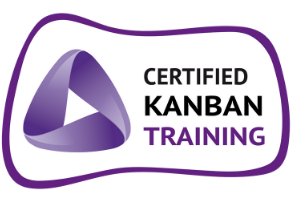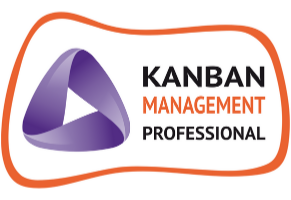Description
Once you’ve designed your Kanban System, you’ll sense the need to focus on the complex demands of a multi-teamed organization, and to explore how to keep momentum beyond initial improvements realized from a successful Kanban implementation. You can address the need for better products and services leading to higher customer satisfaction and business performance through the sound management and understanding of the cadences offered by Kanban.
This course provides the essential tools to those wanting to grow a learning organization and leverage the many services which connect and interact.
After these two days, you will uncover the potential still hidden in your system, even if you are currently using Kanban successfully.
You will learn about the techniques which can be used to achieve the full potential of your Kanban system.
In this advanced Kanban training, we work on scaling, prioritizing and forecasting—those themes which need a system that has been in place for a while and has somewhat matured.
Forecasting
“When will the work be finished?” and “How much work can we deliver in each time-frame?” are two questions which you will be able to answer in the future with accurate predictability instead of just estimating an answer.
Prioritizing
Are you at the point where the WIP limit isn’t being maintained because suddenly everything has top priority? Classical prioritization often causes more problems than it solves. We examine an economically reasonable and resilient method for prioritization: Cost of Delay.
Scaling
With the third theme, scaling, we focus on answering the following question: How do you best coordinate a Kanban system over different hierarchical and functional levels of a company, so that they are integrated and networked into a whole system?
Who Will Benefit?
The ideal participants of this class are those seeking to gain a deeper understanding of the benefits of applying Kanban to their existing workflows.
This course serves those who take responsibility for establishing, managing and/or improving the delivery of products and services to customers of professional service businesses. Previous KMP II attendees have been in roles such as:
- Senior Managers
- Program and Project Managers
- Product Managers, Product Owners and Business Analysts
- Scrum Masters, Team Leads and Change Agents
- Product & Software Developers & Testers
- Agile Coaches & Practitioners (Scrum, XP, DSDM, AgilePM, etc.)
- Process Improvement Coaches, Stakeholders, and Sponsors
- Other roles such as HR and Finance professionals
Topics Covered
The course follows the official KU Certified Kanban syllabus. During the two days, you will have ample opportunities to discuss and experience the following topics:
- Deeper Kanban practices to sustain evolutionary improvements
- Fitness for purpose metrics
- How to fight emotional objections to WIP limit introduction
- Practice Kanban as a robust blueprint for real-world change management scenarios
- Compile Kanban strategies to sustain and scale evolutionary improvements in your organization
- Enabled by 7 Kanban cadences, apply a tactical approach to organizational feedback loops in common areas, including:
- Operations Review
- Service Delivery Review
- Risk Review
- Accurately predict when your work will be finished.
- Make prioritization decisions based on economic factors instead of hunches.
- Scale your Kanban system to generate more value for your company.
- Implement the most important advanced flow concepts in your daily work.
- Forecasts for single work items
- Forecasts for several work items (e.g. Releases, Sprints)
- Sequencing and Scheduling
- Managing Risk
- Gain hands-on learning with an enterprise-level Kanban case study
Course Agenda
Day 1:
- Review and explore the motivations for the Kanban method
- Examine and recognize emotional objections to WIP limit introduction
- Assess and interpret the Kanban value system, commitment and replenishment
- Investigate Kanban at scale, understanding the organization as a network of services
- Introducing an enterprise-level Kanban case study
Day 2:
- Identify an evolutionary approach to change management
- Investigate Fitness for purpose, KPIs, and metrics
- Implement organizational feedback loops with Kanban cadences
- Further analysis of the enterprise-level Kanban case study
Prerequisites
To attend the KMP II class, you will first need to complete the 2-day, KMP I class. Prior to the training, it is recommended to read one of these two books:
- Kanban by David J. Anderson
- Kanban from the Inside by Mike Burrows
We provide the “Kanban” e-book by David J Anderson for free and a 50% discount on the “Kanban from the Inside” e-book by Mike Burrows to all registered participants.
What you’ll learn
- Kanban University’s certified training curriculum and teaching methods were created through the collaboration of leading experts and validated in hundreds of training classes around the world.
- You get pragmatic, actionable guidance you can implement in your organization next week – because it doesn’t require permission, a large budget or getting others to change.
- You will receive training from an Accredited Kanban Trainer, who has experience teaching and coaching Kanban within several organizations.
- Profile listing on the Kanban University (KU) alumni page.
What You Get
- You will receive training from an Accredited Kanban Trainer, who has experience teaching and coaching Kanban within several organizations.
- You will receive a KMP certificate of course completion from Kanban University (KU) as well as membership of KU. The Certificate is for lifetime and doesn’t need to be renewed.
- Profile listing on the Kanban University (KU) alumni page.
Professional Development Units (PDUs) and Scrum Education Units (SEUs)
- Attendees may be eligible to apply for 16 PDUs toward their continuing education requirements with the Project Management Institute (PMI) for PMP, PgMP, and PMI-ACP certifications
- Scrum Alliance SEUs: 16 SEUs for 2-day Kanban Systems Improvement Course





